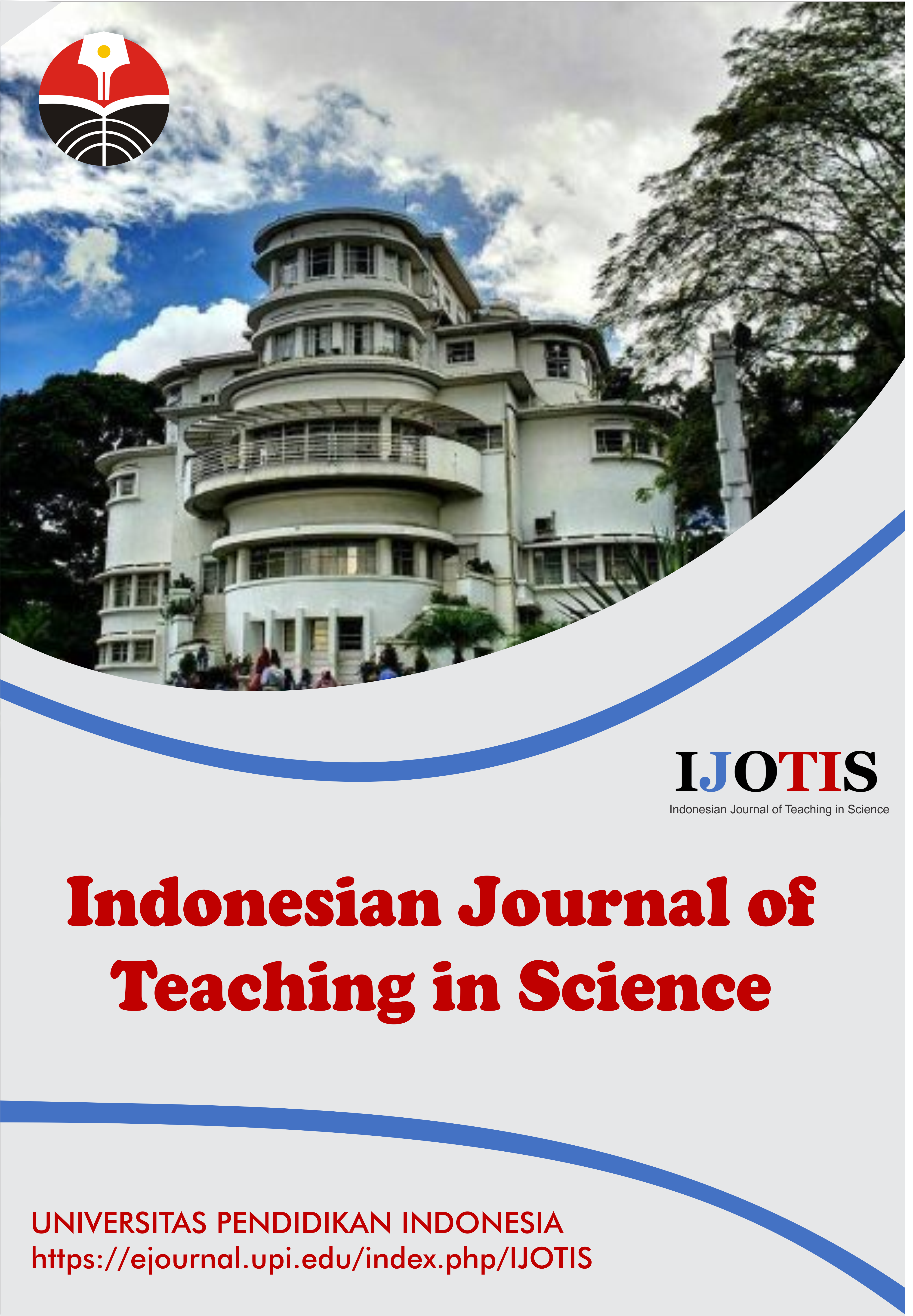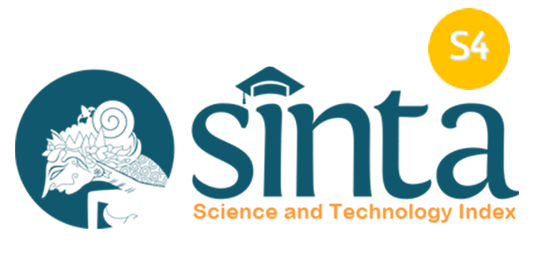Students’ Attitude Towards Gamification-Based Teaching in Mathematics in Basic Schools
Abstract
Keywords
Full Text:
PDFReferences
Aguiar-Castillo, L., Hernández-López, L., De-Saá-Pérez, P., and Pérez-Jiménez, R. (2020). Gamification as a motivation strategy for higher education students in tourism face-to-face learning. Journal of Hospitality, Leisure, Sport and Tourism Education, 27(1), 1-5.
Alabbasi, D. (2018). Exploring teachers' perspectives towards using gamification techniques in online learning. TOJET: The Turkish Online Journal of Educational Technology, 17(2), 34-45.
Asante, R. O. (2012). Secondary school students' attitude towards mathematics. Africa Journal Online (AJOL), 20(1), 1-12
Da-Rocha, S. L., Gomes, A. S., and De-melo, I. J. (2016). Effectiveness of gamification in the engagement of students. Computers in Human Behaviour, 58(1), 48–63.
Emerson, P., Diosa, C., Jonathan, O. E., Porferio, A., and Almerino, J. G. (2019). Attitude and academic achievement of high school students in mathematics under the conditional cash transfer program. International Electronic Journal of Mathematics Education, 14(3), 583-597.
Galbis-Córdoba, A., Martí-Parreño, J., and Currás-Pérez, R. (2017). Education students’ attitude towards the use of gamification for competencies development. Journal of e-Learning and Knowledge Society, 13(1), 17-23.
Haruna, G., and Umar, M. A. (2021). Role of math game apps on attitude towards mathematics among primary. International Journal Advanced Research, 9(5), 578-583.
Ibrahim, H. (2020). Effectiveness of the use of the e-gamification strategy to develop the educational achievement of the preparatory students in dammam city and their attitudes towards It. Education and Information Technologies, 25(1), 4317–4327.
Ibrahim, Y. (2017). The effects of gamification-based teaching practices on student achievement and students' attitudes toward lessons. The Internet and Higher Education, 33(1), 60-71.
Jonah, K. K., Rono, P. K., Jackson, K. T., Benjamin, K. B., and Too, J. (2013). Effects of students' gender on mathematics performance in primary schools in Keiyo South District, Kenya. International Journal of Scientific and Technology Research, 2(6), 247-252.
Karamert, O., and Vardar, A. K. (2021). The effect of gamification on young mathematics learners’ achievements and attitudes. Journal of Educational Technology and Online Learning, 4(2), 96-114.
Kibrislioglu, N. (2015). An investigation about 6th grade students’ attitudes towards mathematics. Procedia-Social and Behavioral Sciences, 186(1), 64-69.
Mata, M., Monteiro, V., and Piexoto, F. (2012). Attitudes towards mathematics: Effects of individual, motivational, and social support factors. Child Development Research, 2012, 1-10.
Mazana, M. Y., Montero, C. S., and Casmir, R. O. (2018). Investigating students' attitudes toward learning mathematics. International Electronic Journal of Mathematics Education, 14(1), 207-231.
Mensah, J. K., Okyere, M., and Kuranchie, A. (2013). Student attitude towards mathematics and performance: Does the teacher's attitude matter? Journal of Education and Practice, 4(3), 132-139.
Mohammed, L., and Waheed, H. (2011). Secondary students' attitude towards mathematics in a selected school of maldives. International Journal of Humanities and Social Science, 1(1), 227-281.
Mubeen, S., Saeed, S., and Arif, M. H. (2013). Attitude towards Mathematics and Academic Achievement in Mathematics among Secondary Level Boys and Girls. IOSR Journal of Humanities and Social Science (JHSS), 6(4), 38-41.
Reddy, P., Sharma, B., and Chandra, S. (2020). Student readiness and perception of tablet learning in he in the pacific: A case study of fiji and tuvalu. Journal Cases Information Technologies, 1(6), 52–69.
Scafidi, T., and Bui, K. (2010). Gender similarities in math performance from middle school through high school. Journal of Instructional Psychology, 37(3), 252–255.
Smith, T. (2017). Gamified modules for an introductory statistics course and their impact on attitudes and learning. Sage Journals, 48(6), 832-854.
Tuimavana, R., and Datt, N. (2017). Teachers attitude towards teaching mathematics at upper primary levels in fiji’s primary schools: A case study of the western primary schools. International Journal of Humanities Cultural Studies, 4(1), 272–293.
Türkmen, G. P., and Soybas, D. (2019). The effect of gamification methodology on students' achievements and attitudes towards mathematics. Bartın University Journal of Faculty of Education, 8(1), 258-298.
Yasar, M. (2016). High school students' attitude towards mathematics. Journal of Mathematics, Science, and Technology in Education, 12(4), 931-945.
Yildirim, I. (2017). The effects of gamification-based teaching practices on student achievement and students' attitudes toward lessons. The Internet and Higher Education, 33, 1-7.
DOI: https://doi.org/10.17509/ijotis.v4i2.68768
Refbacks
- There are currently no refbacks.
Copyright (c) 2024 Universitas Pendidikan Indonesia

This work is licensed under a Creative Commons Attribution-ShareAlike 4.0 International License.
Indonesian Journal of Teaching in Science (IJoTIS) is published by Universitas Pendidikan Indonesia (UPI)
 Indonesian Journal of Teaching in Science
Indonesian Journal of Teaching in Science



